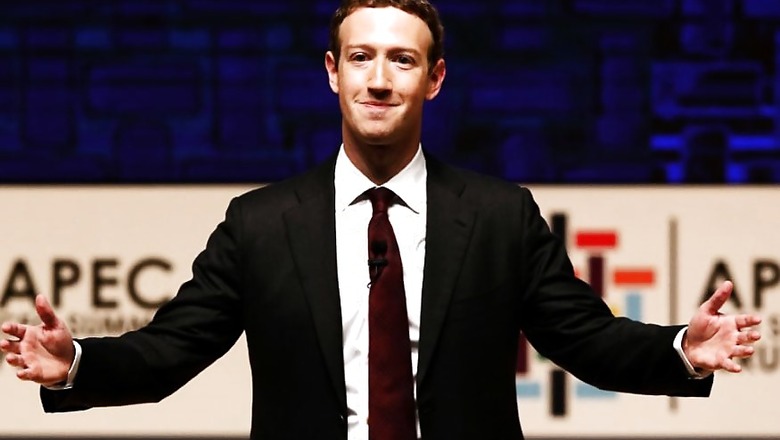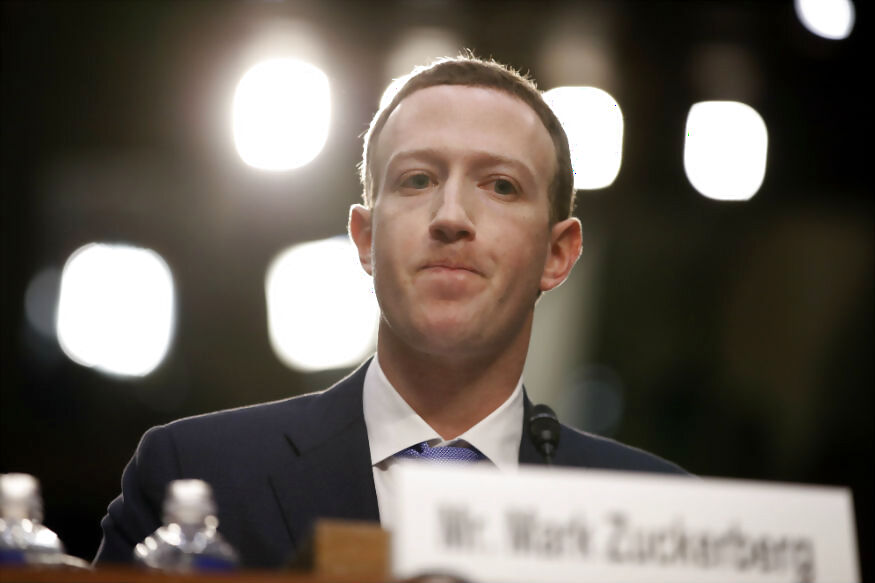
views
After much debate and debacle, it has happened. Facebook CEO Mark Zuckerberg has received an overwhelmingly negative vote from its shareholders in response to questions rising about his chairmanship, policies and the general route in which the company has progressed. In this situation, any other chairman would have had to leave the respective company’s board, but not him.
The reason for this is the strategically arranged two-class shares issued by Facebook. The Class-B shares, held by Mark Zuckerberg and Facebook inside circle of board members, have weightage of 10 voting shares each. In comparison, the Class-A shares issued to the public and to Facebook’s majority shareholders, all count as one voting share. In essence, Zuckerberg has absolute power and authority over Facebook, and even when strongly voted against, he can simply pull in his weight and dismiss anything that displeases him.
And that, is exactly what he did.
What happened so far
At its latest annual general meeting (AGM), protests against Zuckerberg grew stronger, and an angry emoticon was flown over Facebook’s headquarters. According to reports, a staggering 68 percent of Facebook’s “ordinary” shareholders (those who hold the Class-A shares, voted against Zuckerberg’s continued chairmanship of the company, stating that the company would benefit from the presence of an independent chairman, who can also hold him accountable for any dubious practice, thereby acting as a layer of insurance for the investors.
In a separate vote, the shareholders made an even larger, 83 percent vote against the dual-class share structure at Facebook, which practically renders the entire general meeting and shareholders’ vote into a quixotic comedy. As of now, Zuckerberg holds 75 percent of Facebook’s Class-B shares, which means that he alone has 60 percent of the company’s voting power. As a result, even if every single person apart from he himself votes against a proposal, there’s nothing that anyone can do to prevent it.

It is this paranoid stronghold that has caused the issue to appear, with a massive majority of Facebook’s investors now demanding the founder-CEO to step down as chairman. This is further compounded by the fact that Facebook has made a whole bunch of questionable decisions of late, showing thorough disregard for their user’s privacy and treating them as nothing more than trade units. Cases in point include Facebook’s role in the 2016 US elections, the Cambridge Analytica scandal, the Facebook Research teen-spying app, leaked internal conversations about favouring specific companies that pay for private data, and so on.
Zuckerberg, on the other hand, has attempted to defend his near-arrogant stance on his company by insisting that he takes his users seriously, and privacy is of great importance to him and his company. A redesign of layout and fundamental operations on Facebook claimed to address this factor, but truth be told, it barely does. Facebook also faces a bunch of antitrust lawsuits, which it aims to defend. According to Zuckerberg, and as he said in the memorable congressional hearing in the US Capitol, he does not believe that Facebook is a monopoly, or engages in monopolistic practices.
Several data breaches, over time, have clearly revealed that Facebook engages in tracking a user’s phone even after the app is closed. This was reportedly being done to find out about any competition it may have, and simultaneously integrate the requisite feature into their own app, or in cases of Instagram and WhatsApp — buy them over for billions of dollars.
What may happen now
It is perhaps telling that at the latest meeting, the net worth of shareholders that voted to oust Zuckerberg from his throne amounted to $3 billion in Facebook investments. It indeed is, for while Facebook may be a powerhouse today, no company is infallible, and opposing large value shareholders by showing complete disregard for the majority decision is never going to go well.
Zuckerberg is still only 35, but he leads a company that presently has a market capitalisation value of over half a trillion dollars. It is this, that raises his belief that nobody apart from he himself should be allowed to have control of a company that he created. It is a classic case, and one can be profoundly empathetic. But, we are no longer in the final year of college anymore, Facebook’s users aren’t just Zuckerberg’s classmates, and giving in to his whim is not just about bad pizza dinner on a sloppy Saturday night.

Facebook co-founder and Zuckerberg’s long-time friend, Chris Hughes, stated that the company must be broken up for its own sake, lest it spin out of control. Aaron Greenspan, who was Zuckerberg’s classmate at Harvard and has received undisclosed millions from him after winning a lawsuit, opines that it already has spun out of control, thanks to the chief exec’s stranglehold. So far, the company has been wrecked in data scandals. Soon, we might just be staring at a corporate meltdown.
Zuckerberg needs to realise that if he does pay attention to shareholder demands, it may be his key to long-term sustained dominance in the industry. By remaining at the head of operations and still holding a large chunk of Facebook’s shares, he can still retain his emphatic influence, while giving his investors the insurance that they are rightfully claiming.
One only hopes that before the 2020 Facebook AGM, the scales against Zuckerberg do not tip a full hundred.













Comments
0 comment